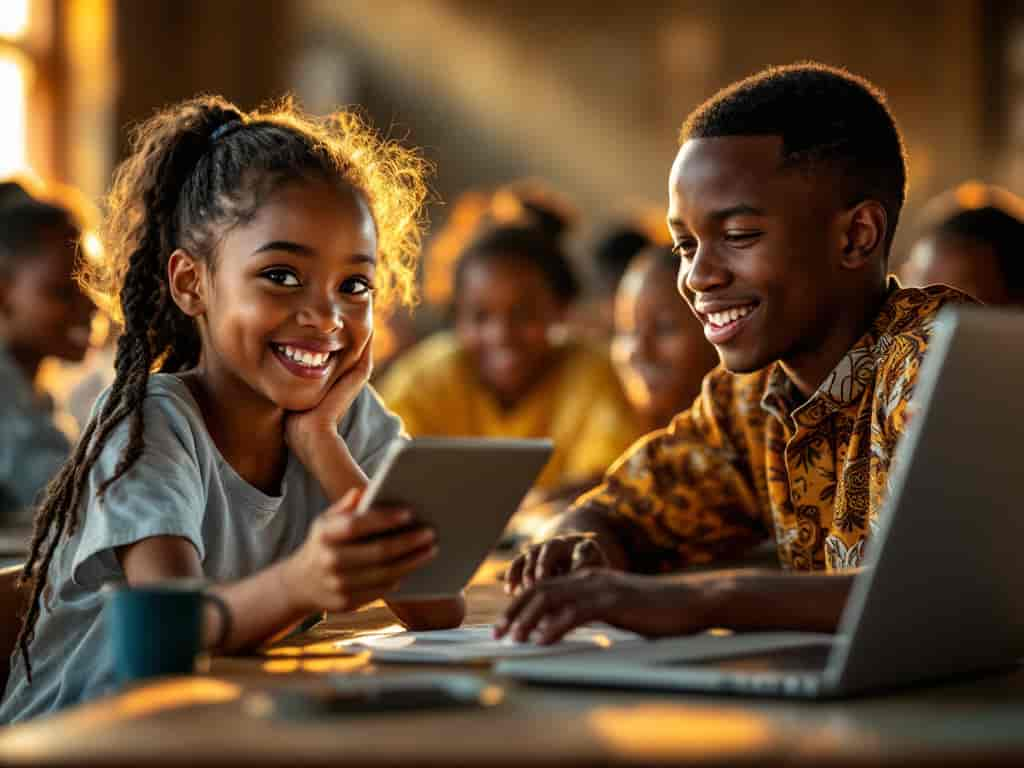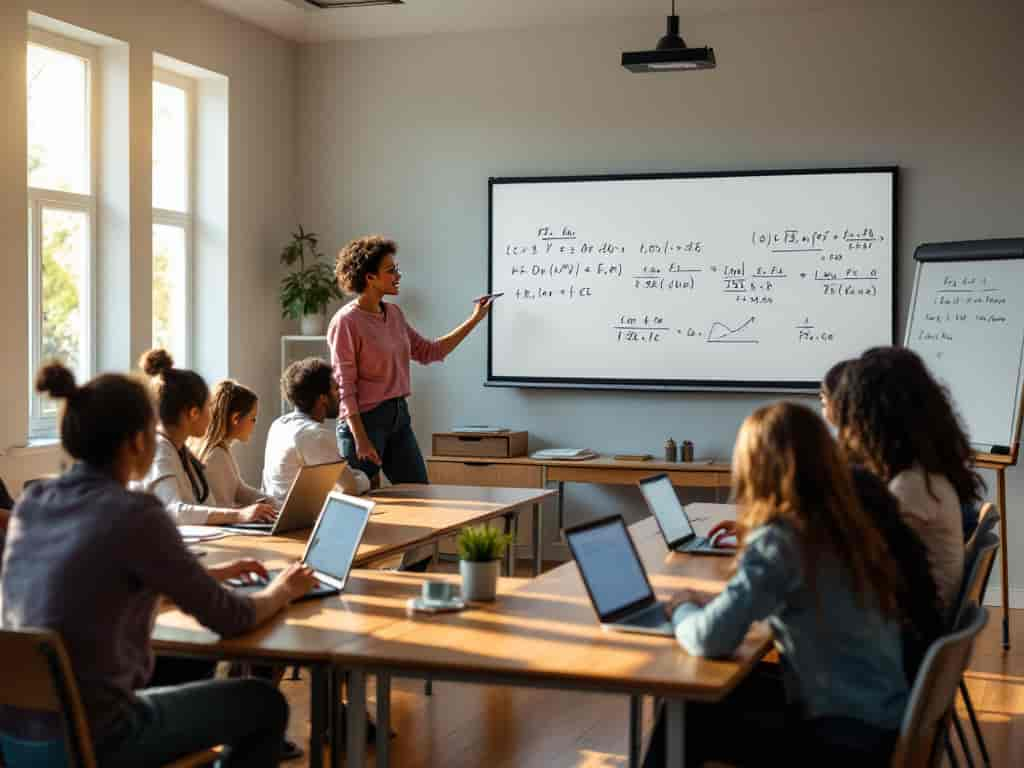Experiential Learning: Beyond Traditional Classrooms
Ellie Moore

Photo: Experiential Learning: Beyond Traditional Classrooms
Experiential Learning: Beyond Traditional Classrooms
In today’s rapidly evolving world, the way we learn is shifting. Traditional classrooms, with their reliance on lectures and textbooks, are no longer the sole setting for education. Enter experiential learning, a dynamic approach that places learners in real-world contexts to engage directly with the material. But what exactly is experiential learning, and why is it so important? This article delves into the concept of experiential learning, its benefits, and how it goes beyond the boundaries of the traditional classroom.
What is Experiential Learning?
At its core, experiential learning is learning through experience. Unlike traditional education, where knowledge is often delivered in a passive manner, experiential learning engages students in active learning. This approach encourages learners to participate in hands-on activities, reflect on their experiences, and apply their findings in real-world situations.
The theory of experiential learning was popularized by educational psychologist David Kolb, who proposed that learning is a process that involves concrete experience, reflective observation, abstract conceptualization, and active experimentation. Kolb’s experiential learning cycle emphasizes the importance of learning by doing, with each phase building on the previous one. In essence, this approach enables students to engage deeply with the subject matter by reflecting on and refining their experiences.
Key Features of Experiential Learning
- Active Engagement: Learners are directly involved in the learning process.
- Reflection: Students critically analyze their experiences to deepen their understanding.
- Real-World Contexts: Learning takes place outside of traditional classroom environments.
- Problem-Solving: Learners face challenges that require creative solutions.
Why Experiential Learning is Important
The growing emphasis on experiential learning stems from the need for more practical, engaging, and relevant educational experiences. Here are a few reasons why this method is so beneficial:
1. Enhanced Retention and Understanding
Experiential learning facilitates deeper understanding. When learners engage in hands-on activities, they are more likely to retain the information long-term. A study conducted by the National Training Laboratories showed that learners remember only 5% of what they hear in a lecture, 10% of what they read, but up to 75% of what they do. By integrating practical experiences into the learning process, students can better understand abstract concepts and apply them in real-world scenarios.
2. Development of Critical Skills
In the real world, knowledge is not always the key to success skills such as problem-solving, collaboration, and communication are often just as important. Experiential learning helps students develop these essential life skills by placing them in situations that require critical thinking and teamwork. Whether it’s designing a product prototype, solving a community issue, or participating in internships, experiential learning fosters the development of transferable skills that students can apply throughout their careers.
3. Increased Motivation and Engagement
Traditional lectures can sometimes feel monotonous, especially for students who learn best through interaction and hands-on activities. Experiential learning boosts engagement by making learning more dynamic and meaningful. Students are more likely to stay motivated and take ownership of their learning when they see its direct application to the real world. According to a study by The Educause Review, students who engage in experiential learning report higher levels of motivation and satisfaction with their educational experiences.
4. Bridging the Gap Between Theory and Practice
One of the major criticisms of traditional education is that it often fails to connect theoretical knowledge with real-world application. Experiential learning closes this gap. For instance, students learning about business strategy can gain hands-on experience by working on real company projects. Such experiences allow them to apply theoretical concepts in practical settings, solidifying their understanding and preparing them for the workforce.
Types of Experiential Learning
Experiential learning is not confined to a specific field or method. There are various types of experiential learning activities that can be implemented across different disciplines. Here are some examples:
1. Internships and Work-Integrated Learning
Internships are a classic example of experiential learning. Students who participate in internships gain valuable insights into the workplace, develop industry-specific skills, and build professional networks. These experiences provide learners with practical exposure to their chosen fields and often lead to job opportunities after graduation.
2. Service Learning
Service learning involves students working on projects that benefit the community. Whether it's volunteering at a local shelter, participating in environmental initiatives, or assisting with social outreach programs, service learning provides students with the chance to apply classroom knowledge to real-world issues while giving back to society.
3. Simulations and Role-Playing
Simulations are often used in disciplines like business, healthcare, and law to create controlled environments where learners can experiment with different scenarios. Role-playing exercises also allow students to experience situations they may encounter in their careers, helping them develop both soft and hard skills in a safe, educational setting.
4. Field Trips and Study Abroad Programs
Field trips and study abroad programs provide students with opportunities to explore new cultures, industries, and environments. These experiences not only broaden their horizons but also encourage self-discovery and cross-cultural understanding. Field trips, for example, can bring textbook lessons to life by allowing students to visit historical sites, museums, or factories that are directly related to their studies.
Practical Tips for Implementing Experiential Learning
While experiential learning can be incredibly beneficial, it requires careful planning and thoughtful implementation. Here are some practical tips for educators, employers, and students interested in incorporating experiential learning into their routines:
1. Identify Learning Objectives
Before embarking on an experiential learning activity, it’s important to clearly define the learning objectives. What skills do you want the learners to develop? What knowledge should they gain? Having clear goals helps to structure the learning experience and ensures that it is purposeful.
2. Encourage Reflection
Reflection is a cornerstone of experiential learning. After each activity, encourage learners to reflect on their experiences. This can be done through journaling, group discussions, or one-on-one debriefing sessions. Reflection allows learners to gain deeper insights and internalize the lessons learned.
3. Incorporate Technology
Technology can enhance experiential learning by providing virtual simulations, online collaboration tools, and digital resources that complement hands-on activities. Platforms like VR simulations or online project management tools can create immersive learning experiences even outside the traditional classroom setting.
4. Foster Collaboration
Experiential learning often involves group work, which means learners can benefit from each other’s perspectives. Encourage teamwork and peer collaboration to simulate real-world environments where individuals must work together to solve complex problems.
Overcoming Challenges in Experiential Learning
While experiential learning offers numerous benefits, it can also present challenges. These may include logistical issues (such as coordinating internships or field trips), resource limitations, or resistance to non-traditional methods of teaching. However, these challenges can be mitigated with careful planning and a focus on creating a supportive learning environment.
Conclusion
Experiential learning offers a powerful way to bridge the gap between theory and practice. By engaging learners in real-world contexts, this approach promotes deeper understanding, enhances critical skills, and prepares students for success in their careers. As the educational landscape continues to evolve, integrating experiential learning into curricula and workplace training programs will be crucial for fostering a generation of well-rounded, adaptable individuals.
Are you ready to take your learning beyond the traditional classroom? Start seeking out real-world experiences, internships, and collaborative projects that will help you grow both professionally and personally. Let’s continue the conversation what are some ways you’ve experienced learning outside of the classroom?
Frequently Asked Questions (FAQ)
What are the key benefits of experiential learning?
Experiential learning promotes active engagement, enhances retention, fosters skill development, and bridges the gap between theory and practice.
How does experiential learning differ from traditional learning?
While traditional learning is typically lecture-based, experiential learning involves active participation in hands-on activities, real-world problem-solving, and reflection.
Can experiential learning be implemented in all subjects?
Yes, experiential learning can be applied in a wide range of disciplines, from science and business to the arts and humanities.
How can educators implement experiential learning in their classrooms?
Educators can incorporate activities like internships, field trips, simulations, service learning, and collaborative projects to encourage experiential learning.
Finance & Investment
View All
June 24, 2025
Yahoo Finance NVIDIA Stock Analysis 2025Go beyond keywords! Create expert SEO content that builds E-E-A-T, delivers genuine value, and earns top rankings by truly helping your audience.
Ellie Moore

August 12, 2025
Marine Finance for Boat BuyersWhy simply having content isn't enough. Discover Expert SEO Content: high-value, E-E-A-T-driven material that boosts rankings, traffic, and brand trust.
Ellie Moore

June 2, 2025
Auto Finance Near Me 2025Go beyond keywords! Learn to create expert SEO content that truly ranks. Drive organic traffic, build authority, and satisfy users with our actionable guide.
Ellie Moore

April 2, 2025
Cryptocurrency Staking: A Smart Investment GuideUnderstand cryptocurrency staking and how it works. Learn strategies to earn passive income and maximize rewards in the crypto world!
Ellie Moore

January 10, 2025
Latest Google Finance News UpdatesStand out online! Discover how expert SEO content, focused on E-E-A-T, improves search rankings, builds trust, and converts visitors into loyal customers.
Ellie Moore

March 28, 2025
Viva Finance Review You Should ReadUnlock online success! Discover why expert SEO content, driven by E-E-A-T, user intent, and true value, is non-negotiable for ranking & authority.
Ellie Moore
Insurance
View AllUnderstand the differences between HMO, PPO, and EPO health insurance networks. Pick the plan that suits your needs best!
Ellie Moore
Don't settle for basic car insurance. Get a premium quote for superior, comprehensive coverage. Protect assets & ensure financial security for policyholders & r...
Ellie Moore
Explore how your credit score affects insurance premiums. Learn how to improve your score and save on coverage!
Ellie Moore
Protect yourself from online risks with cybersecurity insurance. Learn why it’s essential for individuals in a digital world.
Ellie Moore
Essential Otto Insurance: Comprehensive protection for policyholders & risk managers. Optimize risk, find best rates, and secure your financial future.
Ellie Moore
Discover how artificial intelligence simplifies claims, enhances accuracy, and speeds up insurance processes.
Ellie Moore
Education
View AllCompetency-based education focuses on mastery over seat time. Learn how this model is reshaping how we measure student success.
Read MoreIs self-directed learning the future? Learn how students can take control of their own education, boost motivation, and achieve better results.
Read MoreOnline homeschooling communities are growing fast. Explore how they provide support, resources, and a sense of belonging to families worldwide.
Read MoreThe digital divide limits education access. Explore strategies and initiatives to bridge this gap and ensure global learning equality.
Read MoreFinancial literacy is essential for today’s students. Discover why teaching money management early can lead to smarter financial decisions.
Read MoreDiscover how flipped classrooms work and why they’re becoming popular. Learn the key benefits of this innovative teaching approach.
Read MorePopular Post 🔥
View All
1
2
3
4
5
6
7
8
9
10
Health






Automotive
View All
August 21, 2025
Cera Automotiva Propaganda Homem Meaning
Por que homens enceram carros em anúncios? Desvende o significado por trás do clichê: marketing, estereótipos e a ligação com status e identidade.

July 21, 2025
Williams Automotive Care And Service Insights
Ensure a healthier, safer, and longer-lasting vehicle. Learn proactive car care insights from Williams Automotive to prevent costly repairs.

July 23, 2025
Find Reliable Automotive Machine Shops Near Me
Locate top automotive machine shops for engine repair. Ensure your vehicle's performance, longevity, and save money with expert engine services.

August 31, 2025
A To Z Automotive Complete Car Care Experts
Unlock your car's full potential with A to Z complete automotive care. Learn why proactive maintenance ensures longevity, safety, and saves you money.

August 28, 2025
R&R Automotive Your Go-To Shop For Repairs
R&R Automotive: Your trusted shop for reliable car repairs & maintenance. Expect expert service, transparent pricing, and peace of mind.

August 3, 2025
Choosing The Best Automotive Spray Gun For Jobs
Achieve a flawless finish! Our guide helps you choose the perfect automotive spray gun, covering HVLP, RP, and LVLP types for pro results.

















